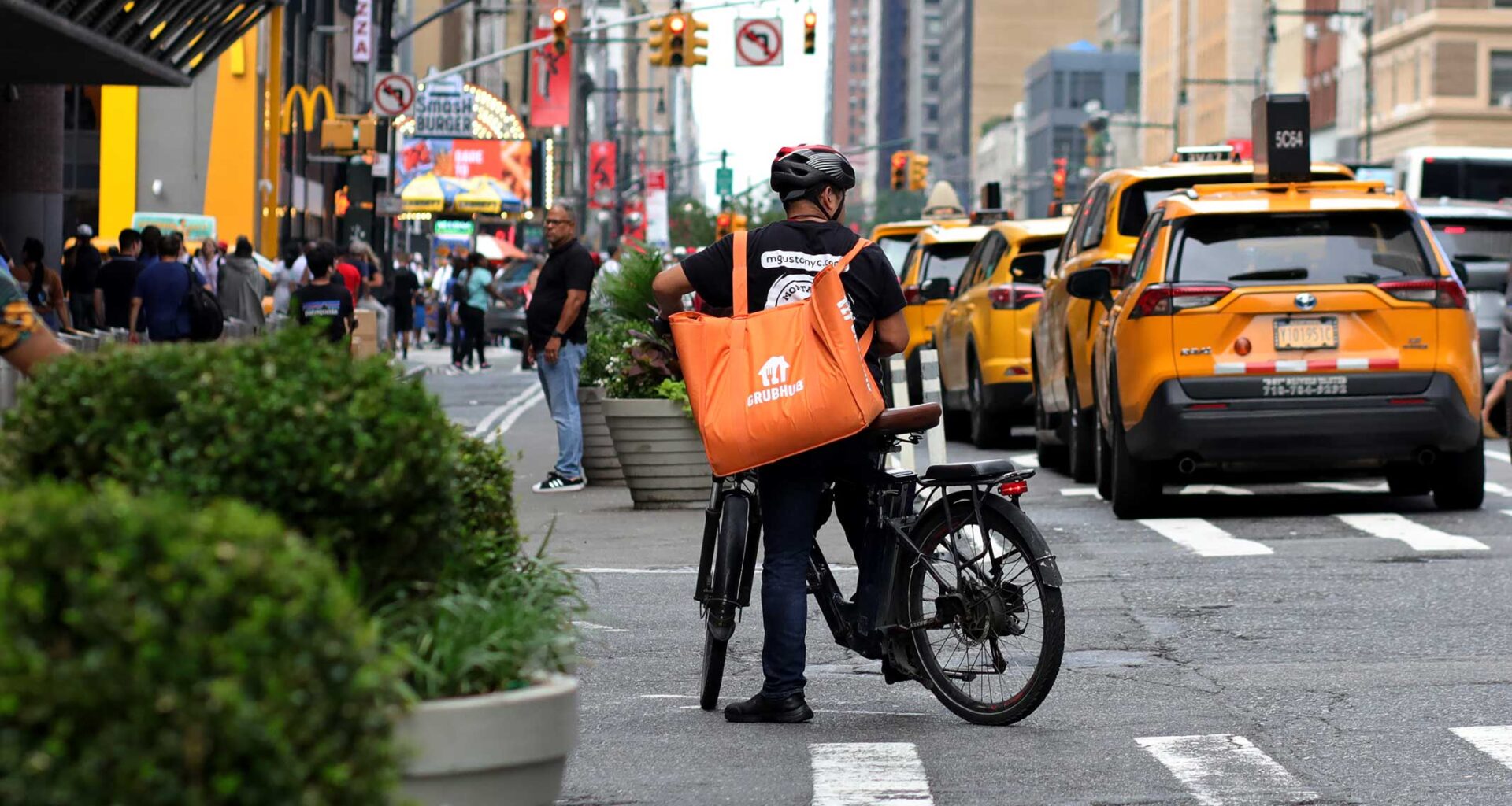The New York City Council recently voted to have the city’s minimum wage rate for app-based restaurant delivery drivers cover grocery drivers as well. Now it appears determined to go even further.
The council is considering whether to scrap the at-will employment arrangement—which allows either workers or employers to terminate the relationship at any time and for any reason—under which the city’s gig economy has operated since its inception. Doing so threatens the future of gig work in New York and will result in higher food delivery prices for New Yorkers.
Finally, a reason to check your email.
Sign up for our free newsletter today.
The proposed bill purports to protect gig-based delivery drivers by requiring app operators to establish “just cause” before deactivating a driver’s account on their network. Platforms would need to provide 14 days’ notice of any such action. The bill also sets up an arbitration process through which drivers can contest their deactivation.
What constitutes “just cause?” The bill would require the platforms to prove that there are “bona fide economic reasons” for deactivation. This can only be done by offering up business records showing “a proportionate reduction in volume of sales or profit within the fiscal quarter prior to the deactivation.” There’s no clear indication as to what constitutes a “proportionate reduction,” but the bill necessarily takes that determination out of the hands of the companies and puts it into the hands of bureaucrats and arbitrators.
The bill’s sponsors frame the legislation as a response to a flurry of deactivations, with reports of up to 50 to 70 delivery drivers being deactivated per day. The uptick mostly appears to trace back to December 2023, when New York became the first city in the United States to enact a minimum wage for app-based restaurant delivery drivers. This law caused a host of adverse effects—not least to drivers themselves.
Once the minimum-wage law went into effect, the platforms incurred higher labor costs, which soon led them to migrate to a shift-based approach. The waitlist to become a driver on popular platforms such as UberEats grew to tens of thousands, and the platforms became leery of lackluster drivers taking spots from more productive individuals on the waitlist. As a result, platforms had an incentive to deactivate the accounts of idle or subpar delivery drivers.
In other words, one misguided government policy (the minimum-wage ordinance) created unintended consequences (deactivations). Now city officials are trying to respond by instituting another misguided policy: eliminating at-will employment. This one-way ratchet effect is part of a larger push by the progressive Left to redefine gig work from contracting arrangements to full-scale employment.
For years, the Left has sought to reclassify all gig workers from independent contractors who enjoy flexible working arrangements to traditional employees. This battle continues to rage in state capitals across the country. Meantime, the Left is attempting to press its gig-workers-as-employees agenda through other means, like eliminating at-will employment status.
The more policymakers treat gig workers like traditional employees—through reclassification, minimum-wage mandates, and curbs on at-will employment—the less flexibility drivers have. But flexibility is the Number One benefit drivers look for in choosing gig work.
These policies also inevitably raise the cost of food delivery for consumers. The recent minimum-wage ordinance raised food prices by 10 percent in New York. Other cities that have instituted minimum-wage rules for delivery drivers have seen similar food-price spikes.
Facing restrictions in their ability to weed out less productive drivers, the platforms will again be forced to bear higher labor costs. These will, in turn, be passed along to New Yorkers ordering their favorite takeout. If the city council persists in its war on the gig economy, New Yorkers—as workers and consumers—stand to lose the most.
Photo by Leonardo Munoz/VIEWpress
City Journal is a publication of the Manhattan Institute for Policy Research (MI), a leading free-market think tank. Are you interested in supporting the magazine? As a 501(c)(3) nonprofit, donations in support of MI and City Journal are fully tax-deductible as provided by law (EIN #13-2912529).

